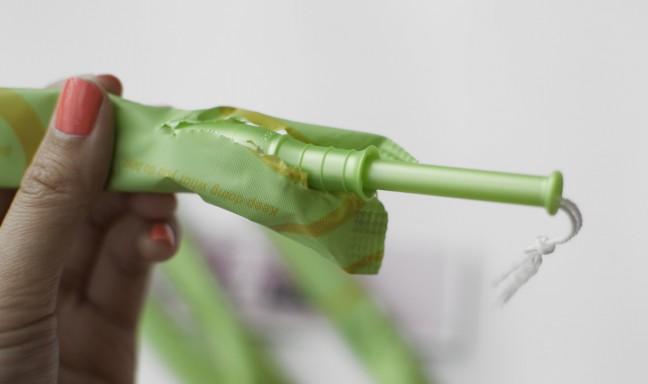A new student organization is trying to get a basic necessity into the hands of those who sometimes have to go without it.
The Accessible Reproductive Healthcare Initiative aims to distribute menstrual products to restrooms throughout campus by 2019, and raise awareness people who buy these resources have to pay sales tax on them.
The Associated Students of Madison this month implemented a pilot program to provide free menstrual products in three buildings on campus by the end of April.
Many take these products for granted, ARHI’s co-founder Kendall Oehler said. People who do not menstruate may not even think about the topic.
Obtaining menstrual products is a real challenge for homeless and low-income people, Oehler said. It is dehumanizing to not have these resources available when they need them.
Jordan Madden, who also co-founded the organization, said when men use a restroom, they have the supplies they need. But women are taught they need to provide menstruation products themselves.
“Since all people with uteruses menstruate, it is kind of a fundamental human need to have access to these products regardless of your economic status,” Madden said.
Madden said people in our culture don’t like to talk about menstruation, so the subject doesn’t get discussed.
What it means to menstruate is different for people who have adequate access to resources than it is for those who don’t, Oehler said.
“It is difficult to imagine what it must be like to not be able to go to Walgreens and pick up a box of tampons,” Oehler said.
These products are taxed as luxury items, which drives up their costs, Oehler said. ARHI wants to change that. These are not luxuries, but necessities, and should be made available as a basic need, Oehler said.
State Rep. Melissa Sargent, D-Madison, said she agrees feminine products are not luxuries. She submitted legislation to repeal the luxury tax on feminine products last session.
Sargent is also looking for ways low-income and disadvantaged people can gain access to these products, Madden said.
ARHI is partnering with the Center for Culture Enrichment in the “BLEEDING LOVE” donation drive, extended through April, Oehler said. The drive is their biggest push for gathering feminine products.
Donations of boxed or loose tampons with wrappers still intact, pads or menstrual cups can be dropped off at many areas around campus. These include any residence hall front desk, the Campus Women’s Center, the Center for Cultural Enrichment in Witte, the Letters and Science Honors Program in Washburn Observatory, the gender and women’s studies department office, Union South and Community Pharmacy.
These products will be distributed to organizations and community centers involved in supportive services to low-income and homeless people, Oehler said.
ARHI has reached out to other student organizations to help spread awareness, Oehler said.
Madden said he is receiving positive feedback from administration on the Health Care Advisory Committee, of which he is a student representative, as the goals of ARHI relate to the University Health Services.
ARHI was created last year as a special project in housing while he working for the Center for Cultural Enrichment, Madden said. It became a student organization this year.
“You shouldn’t be treated differently because you have a uterus and bleed,” Oehler said. “You need to take care of that and a lot of times for low-income people — especially low-income people — you have to choose between buying menstrual supplies and buying food.”


